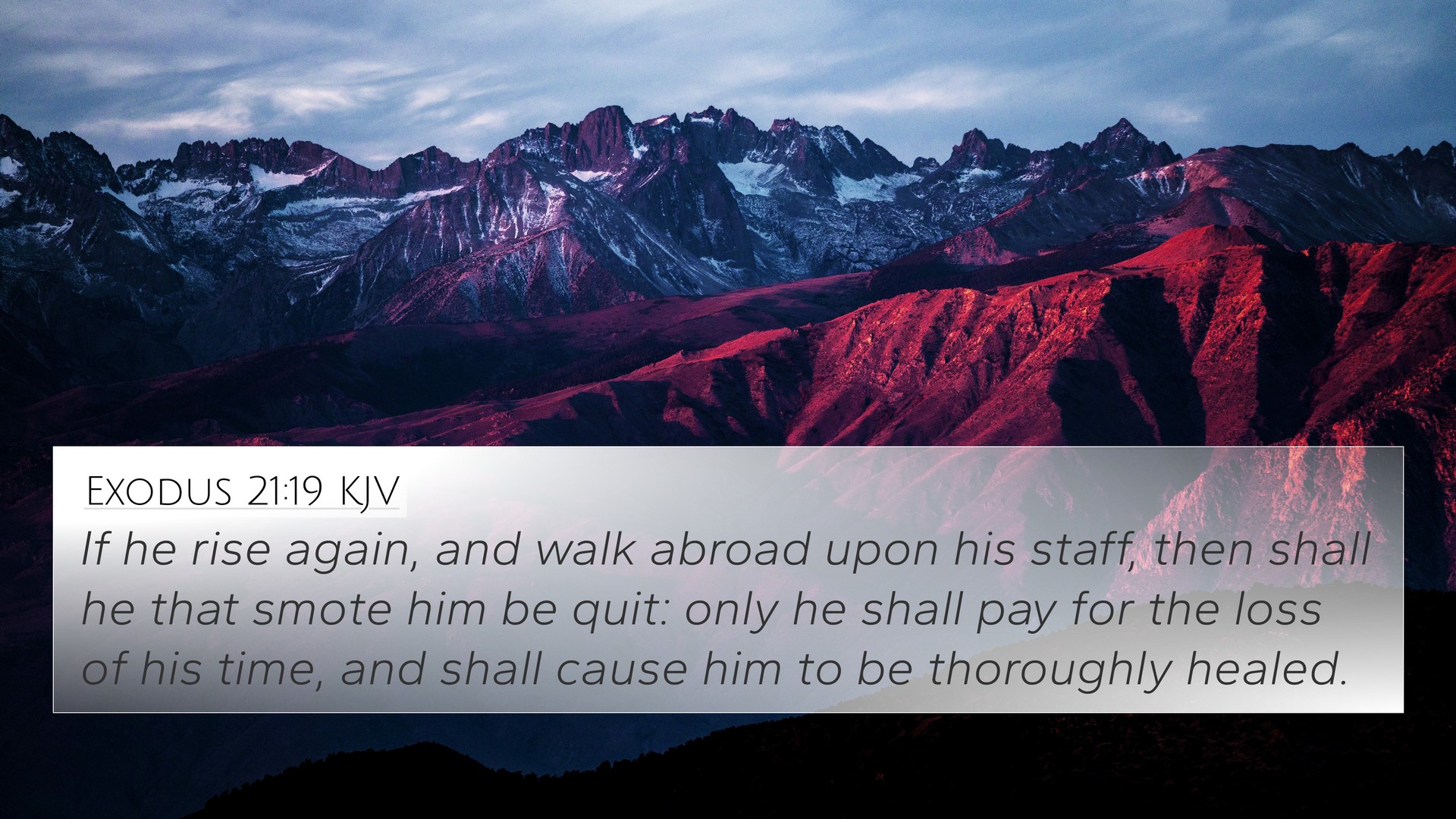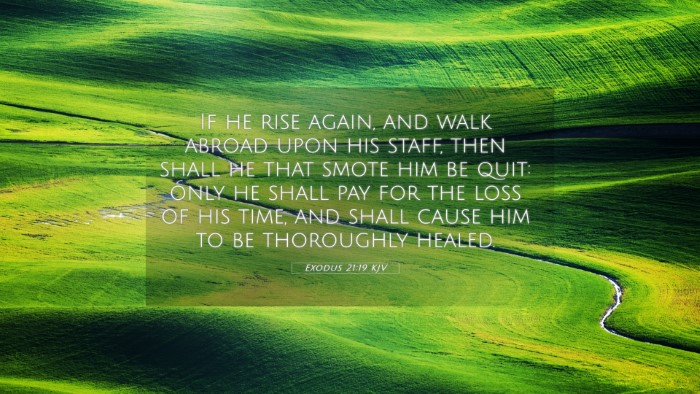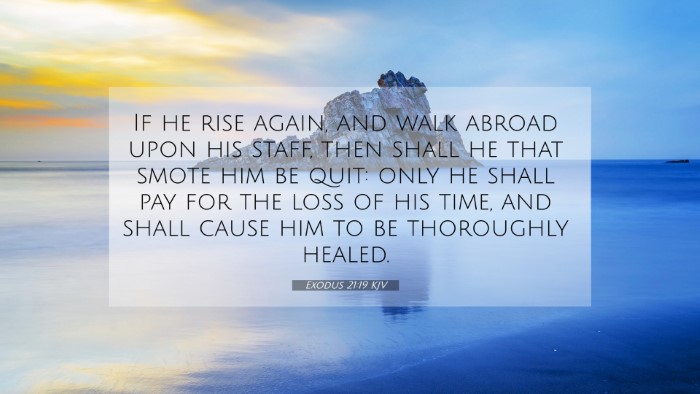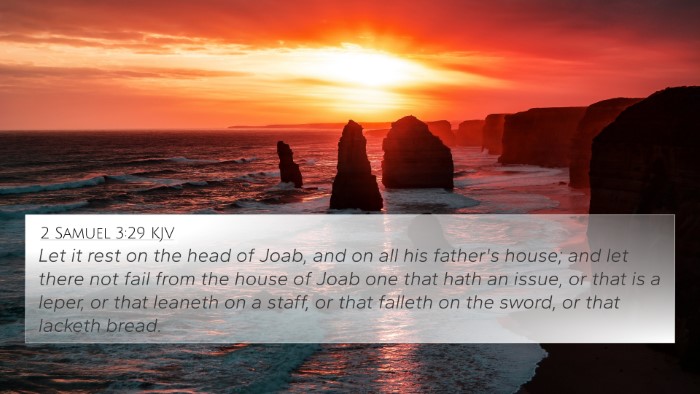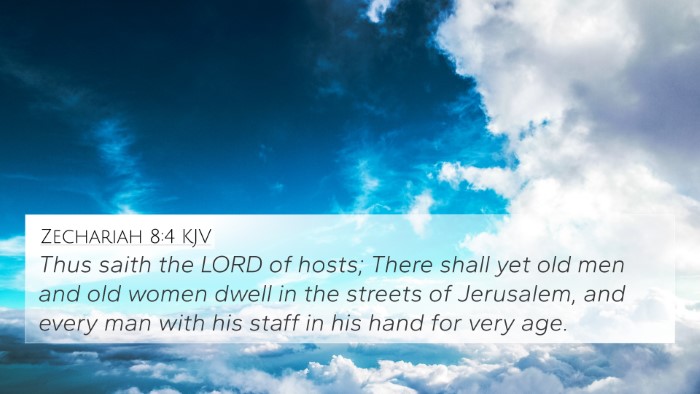Understanding Exodus 21:19
Exodus 21:19 states: "If he rise again, and walk abroad upon his staff, then shall he that smote him be quit: only he shall pay for the loss of his time, and shall cause him to be thoroughly healed."
Summarized Meaning
This verse speaks to the consequences of personal injury and the responsibilities incurred by the one who causes harm. If a person injures another, and the injured party is able to recover and return to normal life, the perpetrator is not held liable for further penalty beyond compensating for wages lost during the injury and ensuring the injured party is fully healed.
Insights from Commentaries
-
Matthew Henry:
Henry emphasizes the principle of responsibility for one's actions, particularly in matters of injury. The verse encapsulates a vital balance of justice and mercy — it is just to compensate for loss caused by injury, but it also recognizes that the ultimate goal is the restoration of the injured party.
-
Albert Barnes:
Barnes notes that this statute illustrates the wisdom of the law in addressing personal injuries. The provision for the injured person's recovery reflects an understanding of justice that seeks to maintain societal order while ensuring that restoration is prioritized over punishment.
-
Adam Clarke:
Clarke explains that the law outlined in this verse reflects God's concern for the welfare of individuals within His covenant community. The concept of healing is underscored; complete restoration is of utmost importance, thus ensuring the injured does not live with ongoing disadvantages due to someone else's wrongdoing.
Bible Verse Cross-References
To deepen understanding, several Bible verses connect thematically with Exodus 21:19:
- Leviticus 24:19-20: Discusses the principle of "an eye for an eye," emphasizing proportional justice.
- Deuteronomy 19:21: Reinforces the concept of fair compensation and justice in legal matters.
- Matthew 5:38-39: Jesus' teaching on turning the other cheek contrasts this legal principle of retribution with grace.
- Luke 6:31: The Golden Rule, which calls for treating others as one would like to be treated, aligns with themes of restoration.
- Galatians 6:5: Encourages individuals to bear their own burdens, echoing the responsibility one has for their actions.
- James 2:13: Highlights the importance of mercy in judgment, complementing the themes in Exodus.
- 1 Peter 2:24: Relates to healing and restoration in a broader, spiritual context relevant to human suffering.
Connecting Themes
Exodus 21:19 serves as an anchor for exploring various themes within Scripture:
- Justice and Mercy: The balance of penal consequences versus restorative actions.
- Restoration: God's desire for wholeness in human relationships and community.
- Divine Law and Human Conduct: The reflection of God's character in how communities govern and administer justice.
- Interpersonal Responsibility: Each person’s obligation toward others' wellbeing.
Tools for Bible Cross-Referencing
To facilitate deeper studies, several tools can assist in cross-referencing Bible verses effectively:
- Bible Concordance: A comprehensive listing of scriptures that helps locate words and themes across the text.
- Bible Cross-Reference Guide: Helpful for finding related scriptures on specific topics or verses.
- Cross-Reference Bible Study: Methods employed for examining inter-Biblical dialogue and parallels.
- Bible Chain References: Arrangements that connect several verses in a thematic series for deeper exploration.
Conclusion
Exodus 21:19 is a nuanced verse that illuminates important aspects of justice, responsibility, and restoration in interpersonal relationships. By cross-referencing it with other biblical texts, we can gain a more profound understanding of its implications and applications in our lives today.
